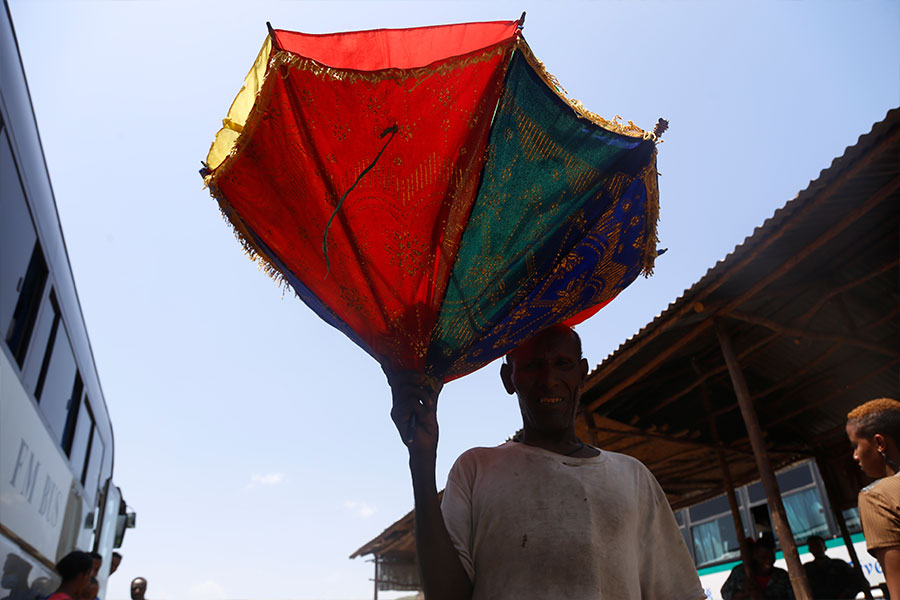
Fortune News | May 01,2022
Every once in a while, there is a TV show that goes viral. Shortly after COVID-19, it was Tiger King, an almost surreal mini-series about exotic zookeepers. Now, it is Squid Game, a Korean thriller produced by Netflix, the streaming platform's biggest ever show.
The show is a subversion of children’s games, where hundreds of adults unable to pay their debts are forced to play. The contestants will receive a prize in the form of cash if they win or be killed if they lose or refuse to participate. It is supposed to be an allegory of capitalism and class inequality, where the ultra-rich make the poor vie for a small share of the pie.
The film’s production design is slick and the scenes depicting the games the contestants play are intense. But coming after the Hunger Games and the far more fantastic Battle Royale, it is The Sopranos to the Godfathers and Goodfellas already out there. The commentary on capitalism is also simplistic and has been done far better by Fight Club, American Psycho or even Dawn of the Dead.
Squid Game is essential for one other reason. It is symbolic of the cultural prominence of South Korea over the past decades. Their soap operas have become dominant, BTS is one of the most recognisable music bands globally, and Bong Joon-ho’s Parasite became the first and only non-English movie to have taken home a Best Picture Oscar. South Korea is on the cultural march.
For some of us cinephiles, at least on the cinematic front, there is nothing new about the Korean “invasion.” Ever since the early 2000s, as its economy reached new heights, it had begun to supplant Japan as the preeminent exporter of premier cinematic content from Asia. With its Akira Kurasawas, Yasujiro Ozus and unique Anime, Japan had a top-tier cinematic output only matched by Europe outside of the United States for most of the latter half of the 20th century. But as its Golden Age faded, South Korea launched its distinctive cinematic industry.
What are the movies that put the country over the map?
Let’s start from Spring, Summer, Autumn, Winter … and Spring (2003), a quietly meditative movie about a Buddhist in training. The film does not have much of a plot to it, but the scenery is fantastic. From time to time, something happens but only as a marker of the passing of time. It is highly recommended to anyone that misses Ozu.
The Koreans are at their most innovative when they focus their energies on suspense and thrills. They have a surprising ability to develop characters carefully, place them in intricate plots and allow the claustrophobia to close in on everybody slowly. The master of such thrills is Park Chan-wook. His most famous movie is Oldboy, a revenge story that discloses in the end that the joke has actually always been on the protagonist. It is cruel, shocking and brilliant all at the same time. It makes the ending of David Fincher’s Seven look like child’s play by comparison. Chan-wook’s best movie, nonetheless, is The Handmaiden. Set in the 1930s, it is a bold movie that tells a period drama wrapped up in a mystery and hidden under an intriguing plot twist. It is as woke as it is engrossingly beautiful to look at during its 140-minute runtime.
And yet, Chan-wook is not even the best director the country has to offer. The honour goes to the endlessly creative Joon-ho. His consistency in making high-quality movies is perhaps only matched by the likes of Quentin Tarantino and Paul Thomas Anderson.
Most people used to know him for Snowpiercer, a very well made film in its own right, but not even in the top three in Joon-ho’s repertoire. After he swept the Oscar for his well-deserved Parasite in the best Director, Screenplay and Picture categories, he has since become an international sensation.
Parasite is probably only his second-best film. The Host is highly recommended, a widely popular monster movie in Korea that tells a surprisingly touching story about family dynamics. Both Okja and Mother are richly entertaining movies that would have received the highest marks in most other directors’ filmography.
My favourite of Joon-ho’s movies is Memories of Murder. Highly atmospheric and reflective, his handling of pace and direction of actors is reminiscent of a young Scorsese or PTA. Some directors have such a breadth of cinematic influences and creative punch, they have a special ability to make movies that seem unadaptable work. They can speak the cinematic language at such an early age, and there has never been better proof of Joon-ho’s fluency than the mysterious Memories of Murder.
Hopefully, South Korea has not peaked, and Squid Game is actually a second-rate output for a country whose filmmakers have impressive talent and the ecosystem to meet that potential.
PUBLISHED ON
Oct 16,2021 [ VOL
22 , NO
1120]

Fortune News | May 01,2022

Fortune News | Oct 16,2021

Radar | Jun 12,2021

Fortune News | Dec 25,2021

My Opinion | Dec 25,2021

Fortune News | Feb 26,2022

Radar | Jun 26,2021

Fortune News | Oct 16,2021

Radar | Jun 21,2021

Fortune News | Jun 12,2021

My Opinion | 131974 Views | Aug 14,2021

My Opinion | 128363 Views | Aug 21,2021

My Opinion | 126301 Views | Sep 10,2021

My Opinion | 123917 Views | Aug 07,2021

Jul 5 , 2025
Six years ago, Ethiopia was the darling of international liberal commentators. A year...

Jun 28 , 2025
Meseret Damtie, the assertive auditor general, has never been shy about naming names...

Jun 21 , 2025
A well-worn adage says, “Budget is not destiny, but it is direction.” Examining t...

Jun 14 , 2025
Yet again, the Horn of Africa is bracing for trouble. A region already frayed by wars...

Jul 6 , 2025 . By BEZAWIT HULUAGER
The federal legislature gave Prime Minister Abiy Ahmed (PhD) what he wanted: a 1.9 tr...

Jul 6 , 2025 . By YITBAREK GETACHEW
In a city rising skyward at breakneck speed, a reckoning has arrived. Authorities in...

Jul 6 , 2025 . By NAHOM AYELE
A landmark directive from the Ministry of Finance signals a paradigm shift in the cou...

Jul 6 , 2025 . By NAHOM AYELE
Awash Bank has announced plans to establish a dedicated investment banking subsidiary...